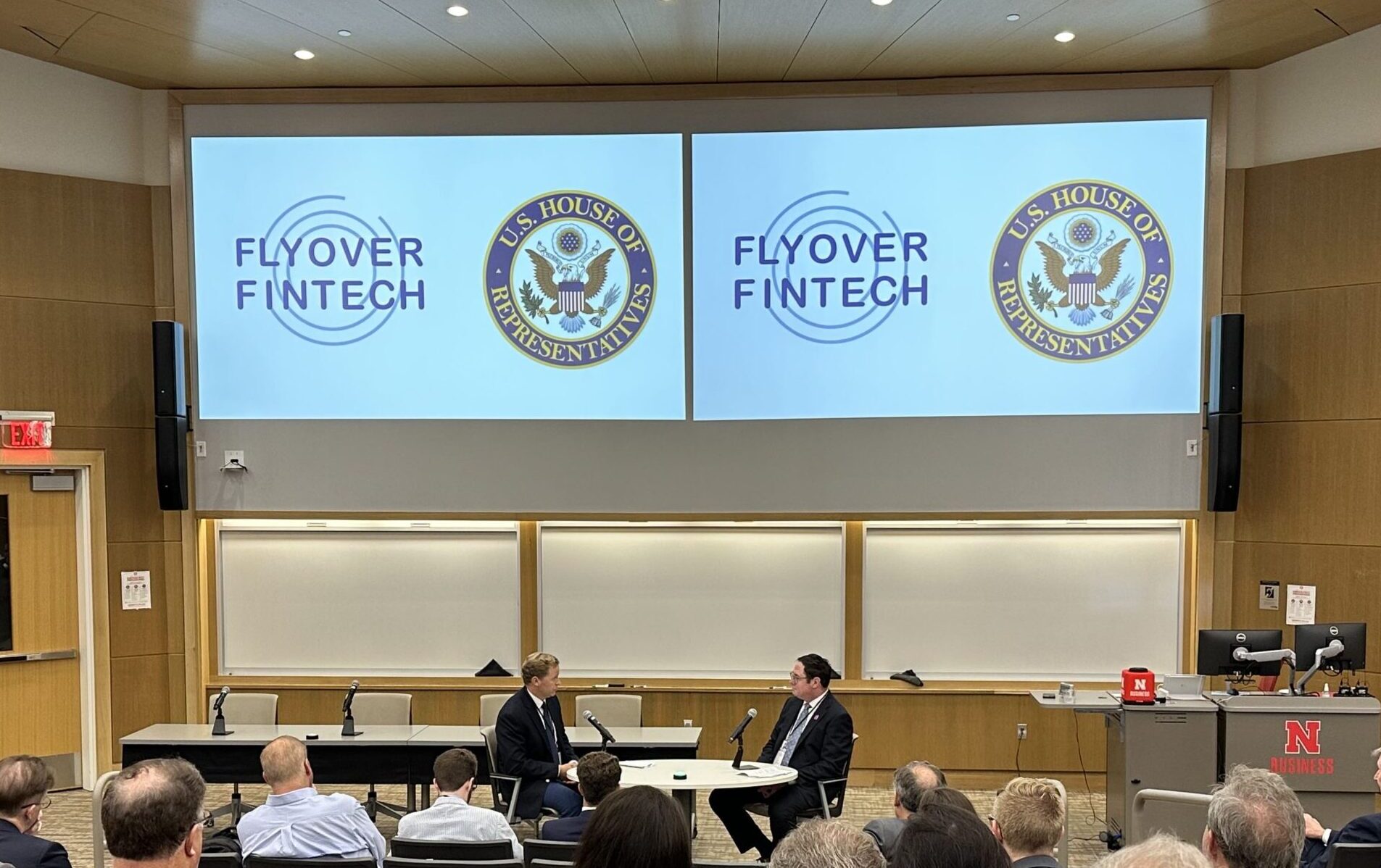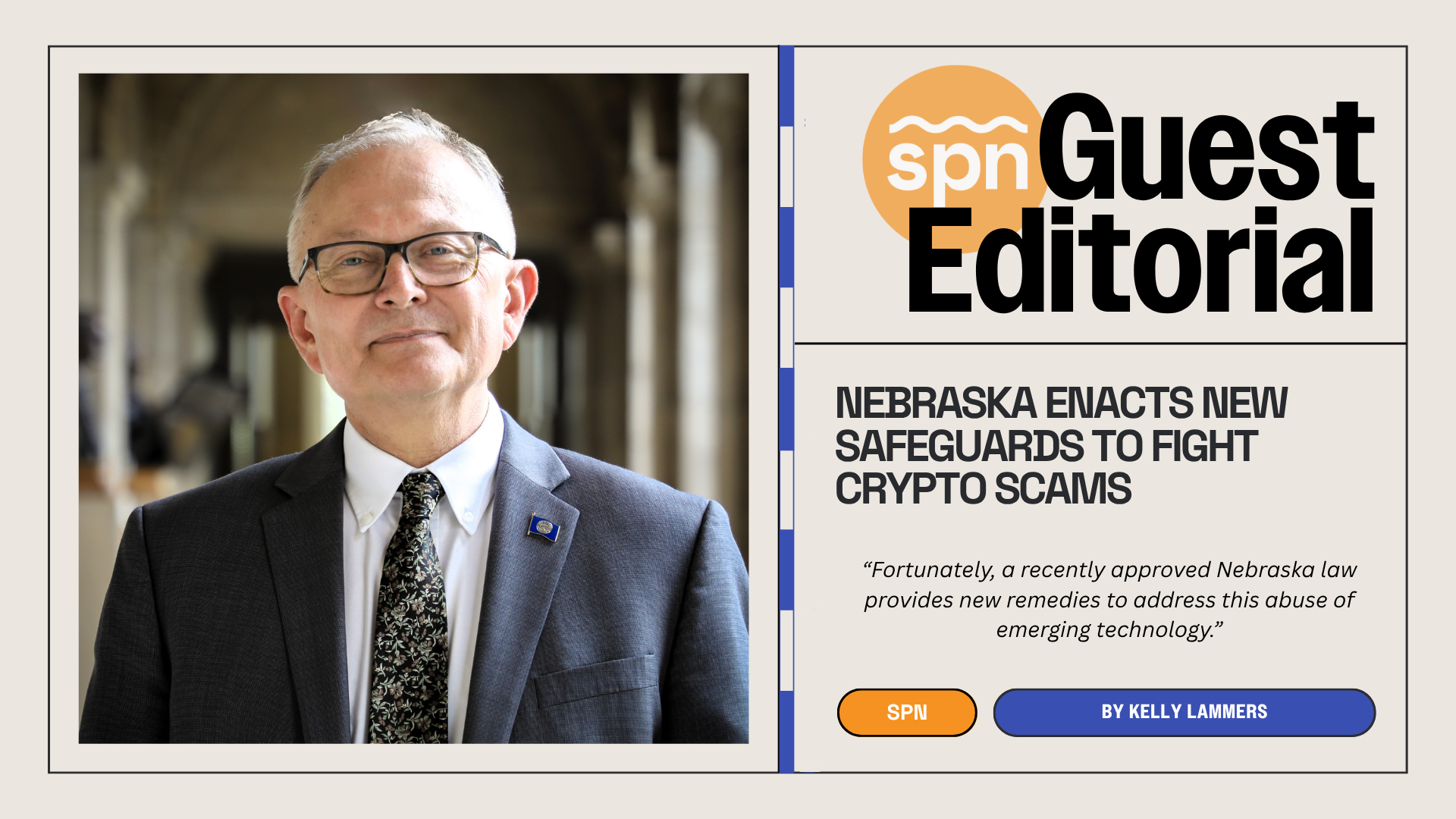Last week 250 attendees gathered for the first-ever Flyover Fintech conference hosted by U.S. Rep. Mike Flood, R-Neb., at the University of Nebraska-Lincoln.
Flyover Fintech featured a day of speakers — ranging from members of the House Financial Services Committee to leading voices in fintech — discussing the current and future states of regulation over cryptocurrency and other digital assets. Topics included the evolving regulatory environment, the potential for innovation and the future of digital assets in a global economy.
Besides Flood, other House members in attendance included Rep. French Hill, R-Ark., the vice chair of the committee, and Rep. Warren Davidson, R-Ohio, the chairman of the Subcommittee on Housing and Insurance.
BasicBlock, Cover Desk, Exodus and Crescent were among the Nebraska startups featured on panels.
Here are a few takeaways from the event:
1. Crypto was the star of the show. The event was touted as a “fintech” conference, but the content was overwhelmingly focused on crypto. The theme attracted heavy hitters from the world of crypto startups. One panel on the regulation of retail investing featured representatives from crypto exchanges Robinhood, Crypto.com, Coinbase and Kraken. Other notable presenters included crypto investors a16z crypto and Bain Capital Crypto.
2. Regulation is inevitable. But hopefully not too much regulation, according to many of the panelists representing industry and the House Financial Services Committee. The consensus was that a delicate balance exists between preventing fraud and bad actors and stifling innovation. “Regulation and innovation don’t normally go together,” one speaker noted. There was an acknowledgement that crypto needs a regulatory framework to operate within, but legacy rules don’t apply.
3. Blockchain is the future of global financial innovation. “Blockchain technology is at the center of our country’s and the world’s digital future,” according to Flood. Blockchain allows for a decentralized approach to processing financial and other transactions involving digital assets. A blockchain is a distributed ledger that replaces the need for traditional financial institutions as the middleman. It’s the underlying technology that enables cryptocurrency. Decentralization was described as the core benefit of building on a blockchain, which could eventually lead to a more accessible, transparent and secure banking system for consumers and lenders.
4. Peer-to-peer payment processing is a big opportunity in fintech. Removing the middleman, panelists contend, will result in faster and cheaper transactions. In his keynote, Hill said we’re in the early days of exploring the opportunity that peer-to-peer payments present. He said in terms of innovation, Venmo now is comparable to the AOL discs that were mailed out in the early days of the internet.
5. You don’t have to be in Silicon Valley to succeed. Panelists noted that blockchain is a decentralized, global technology so you don’t need to be based in Silicon Valley to make it as a founder in the space. Investors across panels said they’re looking for opportunities across geographies, beyond the traditional startup hubs like Boston, San Francisco or NYC. One factor that makes Nebraska particularly attractive is the abundance of “cheap energy” and available land resources – processing these transactions requires an immense amount of energy.
Check out the Fintech Flyover coverage from the Nebraska Examiner and blockchain tipsheet for more recaps from the day.




